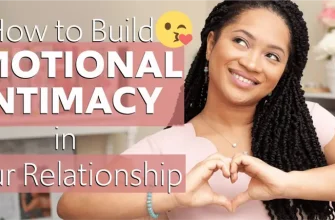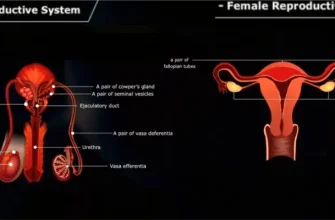Long-term relationships are a journey filled with shared experiences, personal growth, and mutual support. While they offer profound fulfillment, maintaining them requires continuous effort and understanding. According to the American Psychological Association, successful relationships are built on a foundation of trust, commitment, and effective communication. This article delves into evidence-based strategies to help couples navigate the complexities of long-term relationships, fostering lasting happiness and connection.
Effective Communication

Communication is the cornerstone of any healthy relationship. Dr. John Gottman, a renowned psychologist and relationship researcher, emphasizes that couples who openly discuss their feelings, needs, and concerns tend to have stronger, more satisfying relationships. Active listening—fully concentrating on your partner’s words without interrupting—enhances understanding and reduces misunderstandings. Regular check-ins and honest dialogues about both positive experiences and challenges can prevent resentment and keep the connection strong.
Emotional Intelligence

Emotional intelligence (EI) involves recognizing, understanding, and managing one’s own emotions while empathizing with others. A study published in the Journal of Marriage and Family suggests that higher levels of EI in couples correlate with increased relationship satisfaction and stability. Developing EI can help partners navigate conflicts more effectively, respond to each other’s needs, and create a supportive emotional environment.
Maintaining Individual Identity

While shared experiences strengthen bonds, preserving individual identities is equally important. Pursuing personal interests and hobbies contributes to personal growth and brings fresh perspectives into the relationship. Psychotherapist Esther Perel highlights that maintaining a balance between intimacy and independence can reignite passion and prevent feelings of entrapment. Encouraging each other’s personal development fosters a dynamic and enriching partnership.
Quality Time and Shared Activities

Spending meaningful time together reinforces emotional connections. Engaging in shared activities, such as traveling, cooking, or taking up a new hobby, can enhance intimacy and create lasting memories. According to a study in the Journal of Social and Personal Relationships, couples who participate in enjoyable activities together report higher levels of satisfaction and closeness.
Constructive Conflict Resolution

Disagreements are inevitable, but how couples handle them determines the relationship’s health. The Gottman Institute recommends using “soft startups” when broaching sensitive topics—beginning conversations gently without blame. Employing techniques like “I” statements focuses on expressing feelings without attacking the partner (e.g., “I feel concerned when…”). Establishing ground rules for disagreements, such as no yelling or name-calling, can make conflict resolution more productive.
Shared Goals and Values

Aligning on core values and future aspirations strengthens the partnership. Regular discussions about life goals, financial planning, family expectations, and personal values ensure both partners move forward together. A study in the Journal of Marriage and Family Therapy found that couples who regularly communicate about their goals are more likely to experience long-term satisfaction.
Physical Intimacy and Affection

Physical connection is a vital aspect of romantic relationships. Beyond sexual activity, expressions of affection like holding hands, hugging, and cuddling release oxytocin, the “bonding hormone,” which enhances feelings of closeness. Open communication about desires and boundaries ensures that both partners feel satisfied and respected.
Expressing Appreciation and Gratitude

Regularly acknowledging and appreciating your partner strengthens emotional bonds. Simple acts like saying “thank you,” complimenting each other, or expressing admiration can have a significant positive impact. Research in positive psychology indicates that gratitude fosters a deeper connection and increases overall relationship satisfaction.
Adaptability and Growth

People evolve over time, and relationships must adapt accordingly. Embracing change and supporting each other’s personal growth keeps the relationship dynamic and resilient. Flexibility in roles and expectations allows couples to navigate life transitions—such as career changes, parenthood, or relocation—more smoothly.
Seeking Professional Support When Needed

There is no stigma in seeking help from a qualified therapist or counselor. The American Association for Marriage and Family Therapy reports that couples therapy has a success rate of approximately 70-75% in improving relationship satisfaction. Professional guidance can provide new perspectives, tools for better communication, and strategies to overcome specific challenges.
Navigating a long-term relationship is an ongoing commitment that requires effort, empathy, and intentionality. By focusing on effective communication, emotional intelligence, individual growth, shared experiences, constructive conflict resolution, aligned values, physical intimacy, and appreciation, couples can cultivate a strong and enduring bond. Remember, a thriving relationship is not about perfection but about growing together and supporting each other through life’s journey.
References
- American Psychological Association. (n.d.). Building and Maintaining Healthy Relationships.
- Gottman, J. M., & Silver, N. (1999). The Seven Principles for Making Marriage Work. Harmony Books.
- Journal of Marriage and Family. (Various Issues). Wiley Online Library.
- Perel, E. (2006). Mating in Captivity: Unlocking Erotic Intelligence. HarperCollins.
- Journal of Social and Personal Relationships. (Various Issues). SAGE Journals.
- American Association for Marriage and Family Therapy. (n.d.). About Marriage and Family Therapists.

Hayden McKee
Relationship Editor
Born in 1977 in Austin, Texas, Hayden graduated with a Bachelor’s in Psychology from the University of Texas at Austin in 2009 and earned a Master’s in Social Psychology from the University of Colorado Boulder in 2011.
With over 10 years of experience in relationship counseling and content creation, Hayden has worked with more than 300 clients and authored dozens of articles on intimacy, communication, and modern dating trends. Passionate about fostering healthy relationships, Hayden brings a blend of academic insight and practical advice to EroticThreads readers.








